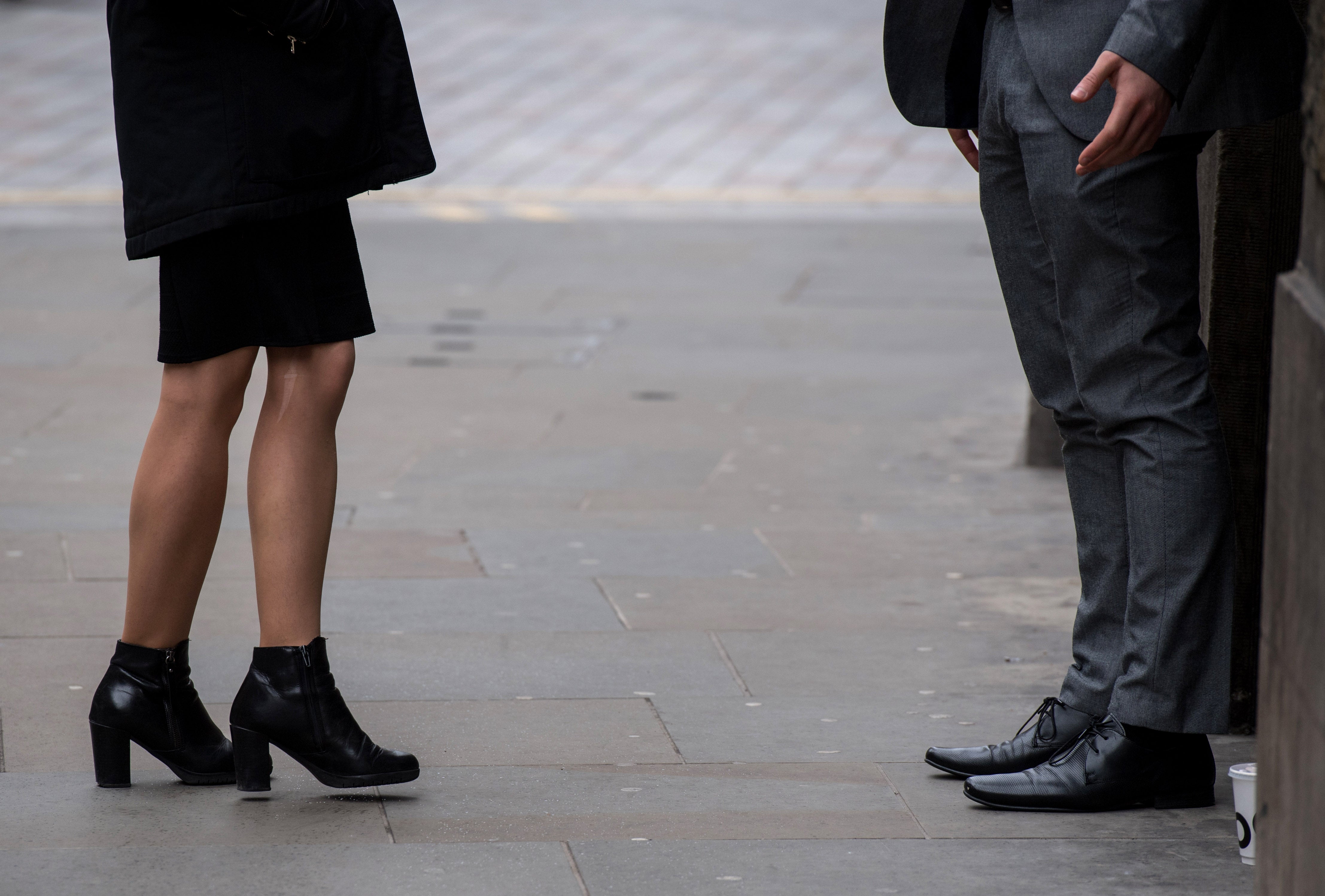Women in Europe will work for free for the rest of the year
‘We also know there are a number of risks to women’s pay and employment as a result of coronavirus which could turn the clock back for a generation,’ says campaigner

Your support helps us to tell the story
From reproductive rights to climate change to Big Tech, The Independent is on the ground when the story is developing. Whether it's investigating the financials of Elon Musk's pro-Trump PAC or producing our latest documentary, 'The A Word', which shines a light on the American women fighting for reproductive rights, we know how important it is to parse out the facts from the messaging.
At such a critical moment in US history, we need reporters on the ground. Your donation allows us to keep sending journalists to speak to both sides of the story.
The Independent is trusted by Americans across the entire political spectrum. And unlike many other quality news outlets, we choose not to lock Americans out of our reporting and analysis with paywalls. We believe quality journalism should be available to everyone, paid for by those who can afford it.
Your support makes all the difference.Women living in the European Union will work for free for the rest of the year from today onwards, the EU Commission has warned.
Hourly wages for women workers are on average 16 per cent lower than their male colleagues, which effectively equates to around two months of their yearly wages, the EU’s executive branch found.
The EU Commission warned progress on tackling the gender pay gap has been stalled by long-standing campaigns launched by individual governments and the European bloc not being properly rolled out.
It comes after research from the European Trade Union Confederation recently found the EU’s gender pay gap will not be eradicated until the next century if progress remains at the same rate.
EU data show the gender pay gap in Europe has closed by a meagre one per cent during the course of the last eight years — which translates into women being forced to wait another 84 years to get equal pay.
The Fawcett Society, the UK’s leading gender equality charity, has said Equal Pay Day will fall on 20 November in Britain this year. Researchers used the full-time mean average gender pay gap which is 11.5 per cent this year — a fall from 13.1 per cent back in 2019 — to calculate this.
Sam Smethers, the charity’s chief executive, said: “While a fall in the gender pay gap is positive, we only have a partial picture because the impact of coronavirus means a quarter of employers are missing from the data set. They are likely to be the ones hit hardest by the pandemic. Even on the figures we do have, we will need to wait until next year to know if there really has been a significant fall. The short-term impact of furlough also makes the figures less clear.
“We also know there are a number of risks to women’s pay and employment as a result of coronavirus that could turn the clock back for a generation. Mothers are more likely to have had their work disrupted due to unequal caring roles and a lack of childcare.
“Men are more likely to have worked under furlough, and to have had their pay topped up. The second lockdown looks set to hit women working in hospitality and retail hard, while predominantly male-dominated sectors like construction and manufacturing are still at work.”
It comes after Stella Creasy, the Labour MP for Walthamstow, recently told The Independent the government has “taken their foot off the pedal” on tackling the gender pay gap, despite the disparity in wages taken home by men and women increasing.
Ms Creasy, who introduced a bill last month that would allow women to ask their employer for data about a male colleague if they suspect they are taking home different wages for doing equivalent work, warned there was a lack of “political will” within government to address the issue.
The politician’s 10-minute rule bill, which has cross-party support, passed its first reading in the Commons.
A report, conducted by Business in the Community, found half of companies did not report their gender pay gap this year, with the number of firms releasing such information having halved since 2019.
Covid-19 upheaval could push gender equality back a generation due to women being overrepresented in sectors most badly hit by lockdown measures, and already being more likely to work in lower-paid, more precarious forms of employment, researchers warned.


Join our commenting forum
Join thought-provoking conversations, follow other Independent readers and see their replies
Comments